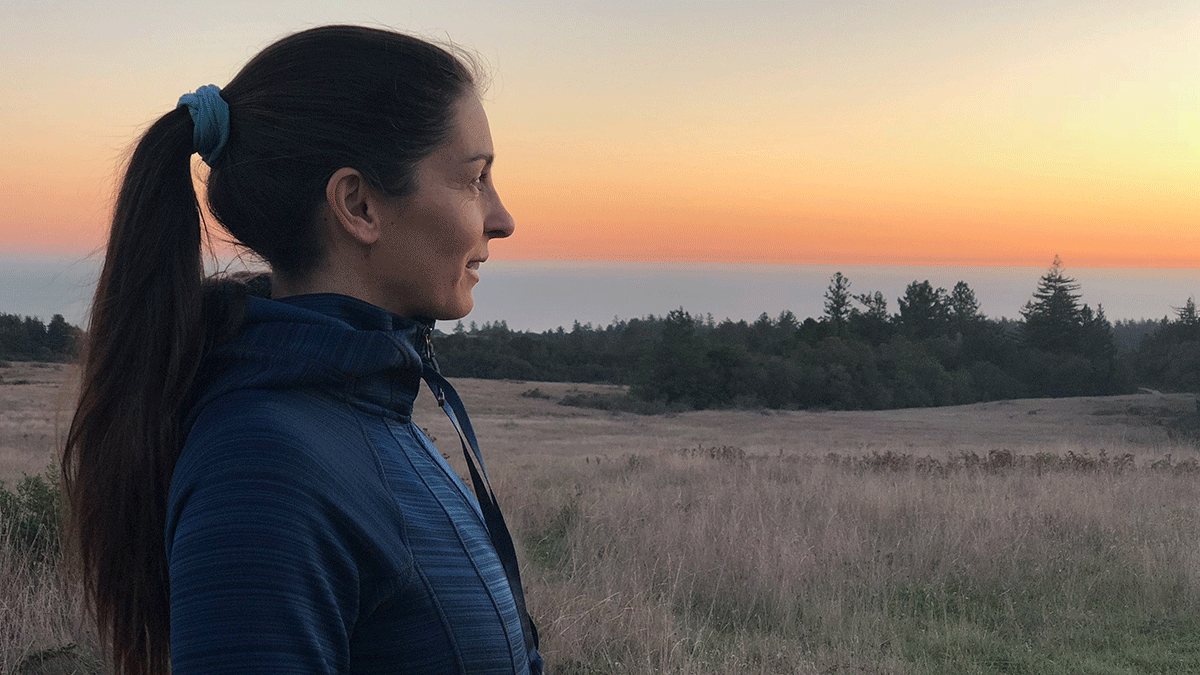|
BY HUGH MCCORMICK POSTED ON DECEMBER 18, 2018 GOOD TIMES SANTA CRUZ War took 13-year-old Lejla Bratovic and her family by surprise. The atrocities that befell their formerly peaceful home country of Bosnia and Herzegovina would become the worst act of genocide since World War II. While their beloved hometown of Sarajevo smoldered, the Bratovic family tried to escape. The Bosnian Serb Army started an ethnic cleansing, and incidents of mass rape shook the country.
Bratovic’s parents pushed their daughter onto a plane bound for the West, one of the last aircrafts to leave the country. Alone and on a plane for the first time in her life, Bratovic felt shocked as she stared out the window of the 747, replaying scenes of her family’s flight and the conflict raging in her homeland. In the U.S., she found herself lost in a labyrinth of awkward interrogations, paperwork and a nearly impossible language barrier, recalls Bratovic, who is now the executive director of the nonprofit Conflict Resolution Center (CRC) of Santa Cruz. Bratovic applied for a tourist visa and was denied multiple times before earning political asylum in America. Bratovic moved in with a host family in Kansas, joining more than 120,000 Bosnian refugees resettled in America. She began working diligently to learn English, piecing words and phrases together from popular songs and television shows. She wondered if she would ever see her family again. The experience strengthened Bratovic, giving her the tools to find her true calling: mediating and resolving contested matters. In a life largely defined by conflict, the job came naturally to her. “The work chose me. Actually, I don’t even consider it work. It’s really just a path in life,” says Bratovic, 40, who finally reunited with her family after several long years, once her parents received visas as part of a U.S. program. RECONNECTING COMMUNITY Bratovic—brown-haired, with piercing blue eyes—says that conflict resolution work is based on empathy. Her unique personal history, she says, gives her the ability to remove herself “from a conflict, and see all sides, always having empathy for people who are suffering.” At the CRC, Bratovic manages a staff of four, plus an army of 45-50 volunteers who offer a variety of services to county residents. Programs are either inexpensive or totally free and include community mediation, victim-offender dialogues, restorative justice dialogues, parent-teen mediation, workplace mediation, and law enforcement-community dialogues. The center, which is participating in this year’s Santa Cruz Gives holiday campaign, has helped thousands of clients, partners, organizations and businesses find solutions to difficult problems in their homes, neighborhoods, court settings, and workplaces. Bratovic says the staff and volunteers like to say that they “get people unstuck.” Bratovic says funds from this year’s holiday giving campaign will cover conflict resolution trainings, as well as the development of a youth violence prevention program. The CRC, which has been around for four decades, will embark on a community-wide engagement campaign in 2019 to promote the use of peaceful dialogue through facilitation, mediation and education. The CRC holds monthly community events to bring people together and have difficult conversations. Bratovic says the center, which has a modest annual operating budget of $140,000, hopes to hire more staff soon to create more visibility and exposure for the organization. Programs address conflict at all stages, including prevention and early intervention. They also provide alternatives to hostility, violence, and litigation. “Conflict will always be here,” says Bratovic. “We need to offer alternative ways to going to court, having violence and living in hate and animosity.” A modest stipend gets each visitor a three-hour mediation session with two CRC employees who facilitate a restorative and healing dialogue. “Any more and you’ll burn out,” admits Bratovic. Most parties only need one session to resolve their conflicts and move on amicably, she says. Bratovic says that she is happy to have found a home with the CRC in Santa Cruz, where she feels the community here is so active and caring. “They’re always giving back and taking a stand,” she says. “The group at the CRC—staff, board and volunteers—are all committed to creating a more peaceful community and giving back. We are resolving conflicts. That is what I love.”
1 Comment
Meni Dollami
3/12/2023 03:47:11 pm
I am hoping you will correct the egregious error on your webpage concerning Lejla Bratovic. Bosnian Serbs did not ethnically cleanse Sarajevo. In fact, it was the complete opposite. When the Muslim army took control of the city at the start of the war, they ethnically cleansed Sarajevo of its Serbian residents, who made up half of the city’s prewar population. 150,000 Serbs fled the city with basically nothing and they have never been allowed to return. As a conflict resolution center, you rely on being trusted so these kinds of mistakes are important to correct. Serbs were also ethnically cleansed from Mostar the second largest city in Bosnia. A total of 650,000 Serbs became refugees. These facts can be easily verified with the Red Cross or the UN.
Reply
Leave a Reply. |
RELATED ARTICLES, EVENTS, AND TRAININGSCRC provides important news that relay worthwhile information about educating and supporting conflict resolution for individuals, families, and communities. We also provide dates for up and coming classes and training’s.
Archives
May 2024
Categories |
|
MEDIATION IN THE MEDIA
Whether it’s a public radio exploration of Muslims and Jews talking their way toward peace, or a cable tv show about mediation between gangs, click here to find examples of how the media portrays people working together. Read CRC News → |
DONATE TO CRC
Your contribution helps us provide effective alternatives to litigation, hostility, and violence. A donation is the fastest and easiest way for you to help us to sustain our projects. Donate Now! → |
SIGNUP FOR CRC NEWSLETTER
Sign up for our e-newsletter featuring news, training and classes schedules, events, and other CRC announcements and promotions. NEED HELP?
Get started by calling: Main Line 831-475-6117 |

 RSS Feed
RSS Feed